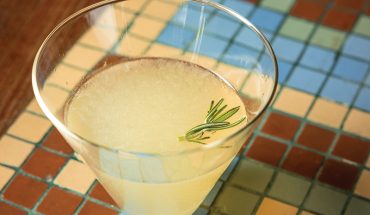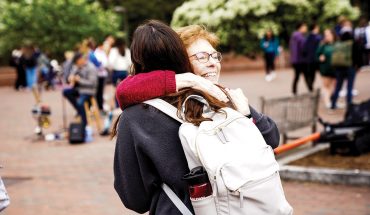We caught up wth Steve Mangano to hear more on the launch of CurEat 2.0, plus his advocacy work for supporting school meals
By Catherine Currin

Felicia Perry Trujillo
Steve Mangano has his hands in many endeavors—he’s a former consultant, and co-founded the N.C. Partnership for Childhood Nutrition (NCPCN). He’s also a dad, and the founder of CurEat app, a positive platform for culinary recommendations.

Felicia Perry Trujillo
When you meet him, there’s one thing you know right off the bat: he is passionate. Passionate about food, for starters. This month, CurEat launched its 2.0 version, with more features like photo uploads, relevant news and discover options. Mangano says he wanted those using CurEat—he calls them ‘restaurant sophisticated’—to have a visually, consumer driven place to share what they love, in their own communities and as they travel. “CurEat’s mission is to create a positive environment, eliminating the clutter that reviews can often bring,’ he says.
Users can create lists of restaurants within the app, with the ability to then share it with a friend visiting that particular city or area. “The purpose of CurEat is to make restaurant discovery easy,” Mangano says. “Ratings are shunned, and the goal is that people can spend more time in places they love.” Since the 2.0 launch, CurEat has experienced 30 percent user growth. “It’s all about a movement of positivity, which I think we could all use more of,” he says. “It’s next to impossible to trash someone or something on our app.”

When he’s not busy developing the app or adding to his list of culinary favorites, he’s passionate about activism in his own community. Through a new initiative, Support School Meals, Mangano and the NCPCN have partnered with dozens of local restaurants to raise money for healthier lunches in public schools.
This project, which runs through September and could continue on, is just a small dent into a larger issue, but Mangano says he’s been blown away by the engagement and interest from the local chef community. He also says that he looks to others in the country who are doing similar healthy lunch initiatives in their own communities—specifically Joe Urban in Greenville, South Carolina, (check him out @schoolfoodrocks). In participating restaurants, patrons can add a donation to their bar tab or dinner bill, and 100 percent of those proceeds are implemented into testing, programming and improving the school meal model. Mangano says that he hopes to decrease the stigma surrounding a school lunch (most children who buy lunch are on the free or reduced model). “If everyone is buying lunch, it reduces the stigma, we have more money to access better food, and we begin to tackle childhood hunger.”


